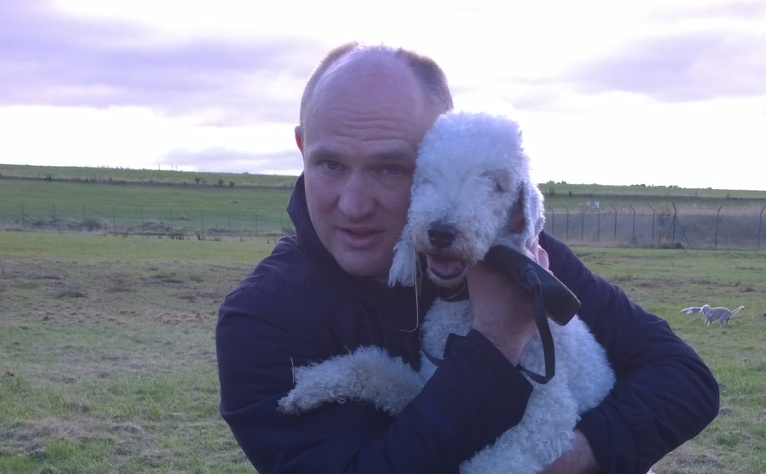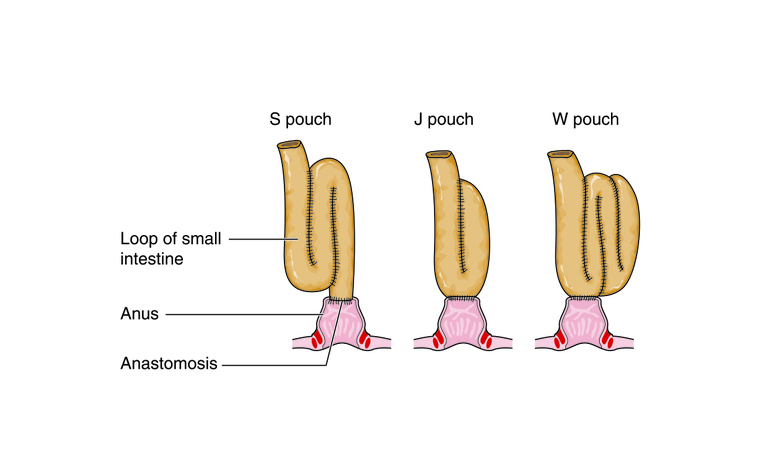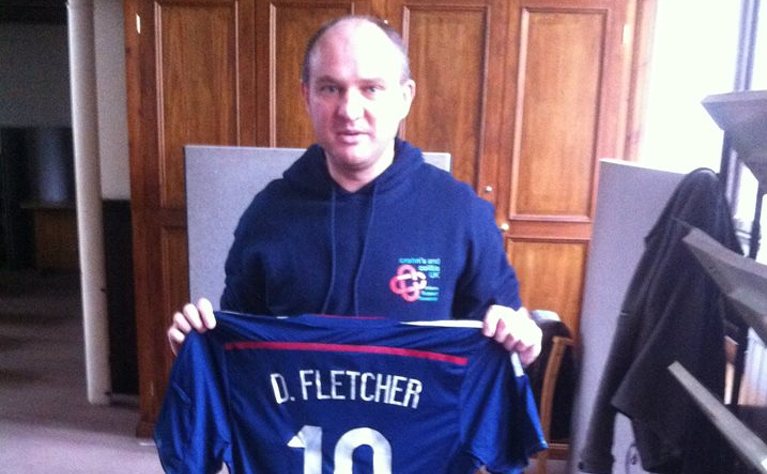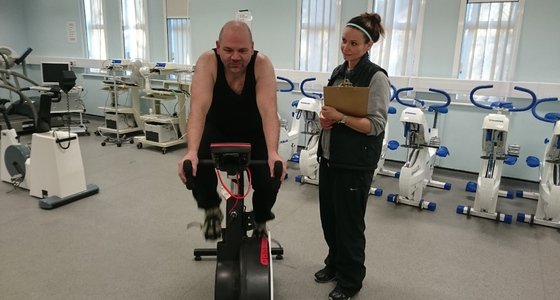In 2014 Edmund underwent surgery for his ulcerative colitis. In this article he documents his return to doing exercise following his surgery...

One thing that has always been constant in my life is that I have always been an active person and try to keep myself fit - despite distractions such as women and studying for accountancy exams!
Once I passed all my exams I made a promise to myself to become more consistent in getting to the gym and making time for exercise in my life. Unfortunately this was around the time I first started having the symptoms of ulcerative colitis (UC), although at the time I hadn’t yet been diagnosed.
At that time what I now know to have been flares of my UC were not as bad as they would ultimately turn out to be so I kept being fairly consistent with going to the gym, but my strength and overall performance would fluctuate in tandem with my health.
After being diagnosed my flares continued to get worse and worse and with being both anaemic and anorexic as a result it became increasingly harder to find the energy to do the basic tasks in life, let alone go to the gym too.
However, I seemed to develop OCD when it came to exercising as it was the only time when I didn’t feel any of the symptoms of my colitis and for that hour or so I left all my troubles behind.
I was also convinced that exercising would help burn up more of what little food I was able to eat and this would lead to a reduction in what was coming out the other end. Not quite sure how true this is but at the time, in my mind, it was what was happening.
I also noticed the only time I didn’t feel the pain and discomfort that comes with IBD was when I was at the gym. So for the 45 minutes or so that I was working out I felt “normal” again.
My body was gradually becoming steroid-dependant so as I tried to taper off them my weight would drop as I flared again and as I went back up in dosages then I would get some energy back and try to regain the muscle I’d lost in the previous flare. This became a never-ending cycle right up until I went for surgery.
When discussing the aftermath of surgery with the surgeon one of my main concerns was when, or even if, I could resume throwing bits of metal around a gym.
Since I was getting a temporary ileostomy followed by a reversal (J-pouch) he said I should do no weights at all for two years after being reconnected to allow for the whole area to heal properly.
However, he also said this was not to be interpreted as doing nothing for that time and that keeping active would be an important part of the recovery process.

I did as much walking as I could given the things I’ve discussed in other articles that happened between operations and continued to do so after my second operation to connect everything up again.
Ten weeks after the second operation I started skipping again once the area around my scars had healed enough not to be rubbed by clothing and a week after that I was back jogging around the neighbourhood again.
Then, just before Christmas 2014, I started back doing bodyweight callisthenics circuits, either in my bedroom or outside depending on the Glasgow weather.
Initially I would take a day’s rest in-between whatever I did as it didn’t half knock me out but, as I gradually got back into the swing of things, I would do a couple of days in a row and gradually built up to doing more days a week than I had rest days.
In the beginning getting back to doing more strenuous exercise took some getting used to but after a while I got back into the swing of things.
The surgeon told me it wouldn’t be until two years after my surgery I would start to really get my mojo back - so even though I was able to do body-weight exercises and jogging I still felt fairly tired afterwards and not quite up to the demands of throwing barbells and dumbbells around.
Maybe it was all psychological, but as I got towards the two year anniversary of my reconnection I started feeling more and more like I had the energy to take on the level of training that I had done previously. Eventually, I couldn’t put it off much longer and the day before the second anniversary of being reconnected I re-joined a gym.
The main concern for me getting back to the gym wasn’t whether or not I could physically cope with what I was doing but more about my body image.
Having been sliced open in various areas my stomach is a bit of a mess and I felt really self-conscious about others seeing that. In the gym where I trained prior to where I do currently the changing rooms/showers were small and compact and when it was busy nothing could be left to the imagination so I was worried someone would see all my scars fairly up close.
Fortunately the gym I joined recently has fairly large changing rooms so I can hide away in a quiet spot, even during the busy times, and the showers each have their own cubicle so I don’t have to worry about anyone seeing me then either. I’m sure my mind is over-exaggerating this whole thing and that I would just explain my situation should anyone pass comment but now that I’ve been going to the gym most days of the week for a few months I hardly think about it when I’m in there.
Another, more practical, concern for me was how my stomach area would cope with lifting heavy weights after being sliced open. I wasn’t quite expecting it to burst open but I didn’t want to be falling forward while squatting as my stomach couldn’t cope with the heavy weight on my shoulders.
I was also worried about how my body would cope with the new added demands of the type of training that I like to do. Having had surgery to remove my colon I am in surgical remission from UC but I still suffer from other symptoms such as fatigue which still impact on my daily life.

After a couple of weeks of getting back into the groove of lifting things and gauging how my body was reacting I got my workout diary out and started planning my programme for the remainder of the year.
I’m not a particularly spontaneous person and like to plan well ahead so generally know what I will be doing in advance. I also want to be as consistent as possible (as long as my body can handle it) so I have planned to fit in at least five workouts every week up until Christmas.
I’ve always got things on outside of work so those generally give me natural breaks in my gym schedule that act as rest days so I can work around those.
I’ve also planned to increase the intensity of what I’ve been doing as I get further into my return. I like to do Crossfit-style workouts most of the time so I can’t just go back to doing those after a two year lay-off and getting back to that level takes time. That said, one of my main goals when training is not to be the strongest person there but to be the most consistent and hardest-working: I like to lead by example!!!
Although I have got things planned well in advance I know that I do need to take into account the effect that all this extra energy expenditure will have on my already fatigued body. If I am feeling particularly tired then I know to ease off a bit from the effort I was planning to go at and not knock myself out too much.
I had a bad cold for a few days recently and in the past I would have still trained through that but this time I decided, probably much more sensibly, to just not go to the gym at all until it had cleared. I had a couple of really hot baths to help sweat the cold out and they also helped soothe the soreness in my muscles from the previous few day’s exertions.
So far, three months or so into getting back into lifting weights, things are going well. Getting back into it wasn’t as hard as I thought it would be, although it did take me a couple of weeks to determine how hard I was able to push myself without overdoing it.
Those of you in the know will be familiar with DOMS (Delayed Onset Muscle Soreness) that comes post-exercise so I still get that after most sessions, although I get the feeling that I don’t feel it as much as I have done previously. Possibly having spent so many years living in chronic pain and as a result of surgeries my pain tolerance is much higher now that a day or two of sore muscles isn’t really that noticeable.
My concerns about whether or not my stomach muscles would be able to cope with heaving weights around have been unfounded and I haven’t had any problems so far.
I feel I do have more energy during the day and also that I’m getting a deeper sleep at night which is unusual for me. During the working week I go to the gym straight after work so that gives me something to look forward to after seven hours of shuffling numbers around spreadsheets and telling people not to spend money.
Also, I’m enjoying the feeling of accomplishment I get once I’ve finished a session at the gym and I know that I’ve pushed myself harder than I did last time. My diet hasn’t changed significantly since I restarted training but I have noticed that what comes out the back end is not as liquid as it has been since my surgery, so that is another area of improvement.
Certainly now that I am back into the swing of things I am looking forward to pushing myself further for as long as I am able and using exercise as one of the means of keeping myself fit and well into the future.

